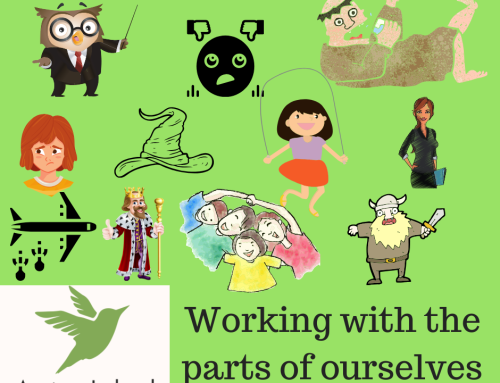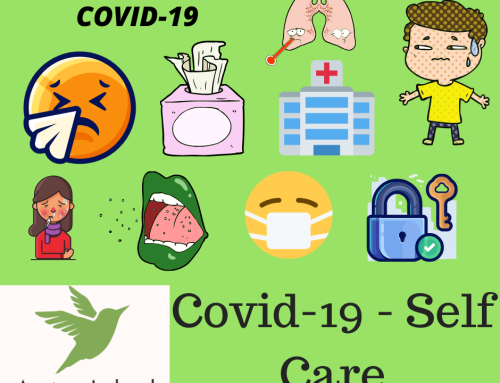Feeling anxious after losing someone or even thinking about a loss?
The grief of losing someone can be one of the most powerfully difficult emotional experiences that any of us can go through. Grief doesn’t just only affect us when someone has died.
We can also grieve because someone has moved away, a relationship has ended or broken down or we have moved away/retired or moved on but this article we will be focussing on losing someone who has died and covering relationships next time.
This article explores how grief/ loss and bereavement can be linked to anxiety and explores some of the ways in which this can happen.
The grief experience:
Grief/bereavement is a normal yet uncomfortable part of human experience. We all come into this world knowing that we and everyone we meet are going to die.
By extension that means that probably by the law of possibilities we are going to outlive at least some of the people in our life. Parents for instance typically don’t outlive their children.
However, nothing prepares us for the pain we feel at the death of those we love. Bereavement hits us at an emotional level that some of us never new existed.
It is common to have intense feelings of guilt, loss, sadness, emptiness and devastation. For most clients I see it is simply a case of having to ride out these feelings and giving the feelings room to work through us and be expressed.
There are very few short cuts for the yoyoing pain of grieving, but there are of course ways we can prolong our grieving.
As a short-term defence, we can put grieving on hold and try to supress the feelings. This can be done through business, drugs/alcohol or just by refusing to go there.
But by doing this we create a split between these normal feelings and the rest of us. We try to keep the feelings in and put them on ice. This has worked in the past evolutionarily for us in terms of a survive mechanism.
In a situation like a war or a series of dangerous events we postpone grieving if someone has died and keep ourselves going. But many of us do the same following natural deaths and plough ahead thinking we are doing great but not dealing with the grief.
Being ready to go there:
There is no timeframe or scale that says when people should go there, but those who suffer bereavements will never be over it unless they can explore and permit their feelings at some stage.
The risk of not being able to go into the feelings is that complicated grief could begin to set in. Like not being able to deal with the aftermath of a trauma, complicated grief keeps people stuck in the event and unable to fully move forward.
Although the person may be still going to work and functioning in many ways all is not right. Suppressing emotional energy and grief take tremendous physical and psychological energy to hold it down.
Energy being used to tie down more energy is a huge waste and causes a lot of anxiety.
Anxiety and dread are the sense that something is not right or that something is going to go wrong. Having lots of grief stuck in us that we can’t express for fear it will overwhelm us is an absolute tonic for avoidant anxiety.
Clients who avoid grief report feeling out of control and on the run from their feelings; it’s as if, if they slow down it will overwhelm them.
This can be common in those that learned from their upbringings to have negative/averse relationships with their emotions. A person avoidant of emotions may cope well generally in life but throw a bereavement into the mix and this simply doesn’t work.
Another issue can be the “straw that breaks the camels back” phenomenon. People are highly resilient even when they have unhealthy relationships with emotions. They can put up with a lot.
But many of the people I work with report that they have had significant bereavements over their lives and been fine. But then there is the one that’s one to many and the defences can’t hold. They become terribly anxious because everything now is at risk of coming out.
The internal pressure of all this suppression and the physical health issues it can cause are tremendous! Grief is a normal process and we must be able to go their piece by piece, day by day.
Sometimes to do this we need help because we mightn’t want to off load on others, or they mightn’t be there. Grief and anxiety going around in our heads and bodies is not discharged it just circulates.
Anxiety and unfinished business:
Another part of being bereaved and particularly complicated grief is when there is unfinished business in the relationship.
Unfinished business can be things that were never spoken about, things never expressed or true feelings never shown.
Regret and feeling unvalidated are side effects of being bereaved. Some may even react to this and then label themselves selfish.
It is very common for the natural feelings around people passing to be accompanied by intense feelings of guilt. Happiness that someone’s suffering is over can bring up guilt and self-recrimination which scream that our feelings are wrong, and we are wrong.
This creates anxiety and shame because we “SHOULDN’T” be like this.
Many people struggle intensely with the fact that they may be holding anger with the deceased for actions that may have happened in the past.
Especially family members, with parents being an obvious example, we can be angry for what we didn’t get from them or for them allowing things to happen to us.
This anger along with our cultural veneration for the dead/ parents in general can lead to an intensely complicated relationship with our feelings.
Anxiety breathes on us feeling like something bad is going to happen (being judged for example) or that we are bad!
But none of us are ever any of our feelings. Feelings are like visitors passing through us each only there for a short while until the next one arises.
Many of us over-identify with our feelings and therefore see them as representative of us. But this is not the case. It is possible to have many feelings at once and at the same time to be none of those feelings.
One could be angry at a parent for never expressing love, relived that their suffering is over, feel sad they’ll never get to talk to them again, and also feel joy that they can now spend more time with their own family.
None of these feelings “bad”, but by shaming ourselves for them we create anxiety and lasting complicated grief within ourselves.
If we try to Pidgeon hole our feelings and reactions in certain ways, then we are inviting anxiety as the ideal doesn’t match the reality. To balance this, we need to accept all edges of our experience as valid, private and real and only part of our unfolding experience.
Anxiety and traumatic deaths:
This is an area which is particularly difficult and bring up a lot of anxiety. In the event of a sudden or traumatic death for someone we may end up with what I would call an intense negative emotional experience.
We may grieve as above and come through pitfalls of allowing ourselves to feel the loss and permitting whatever comes up for us, but these kinds of death pose additional challenges.
Due to the nature of trauma we may become vigilant and fearful of accidents/tragedies happening again!
To lose a friend, a family member or someone we care about suddenly or violently shakes our normal getting-on-with-life self to the core.
Most of us live wrapped up in the security of our lives, passing through day to day. We don’t meditate on death or the impermanence of our human condition.
But sudden death brings us face to face not only with losing someone but also our own mortality. Even a near miss can do this too as we might experience ourselves more nervous and agitated.
Our assumptions about the safety of the world can change and where before we saw nothing, we can see danger.
Parents will know this one intimately as the safety of children becomes paramount. This kind of loss can strongly bring an anxiety around the loss of the future that was possibly there.
The feeling of being in a life turned upside down or robbed of someone can hurt and this is where extra self-care is needed.
Loss of security:
For some of us we can derive more security from other people more than we do from ourselves. When we are small and little this is normal as we are dependent on parents or caregivers to mind us.
As we grow older our psychological security can remain with our parents or become transferred to a romantic partner, attachment figures or other individuals.
Losing an individual like this can be fundamentally challenging depending on the relationship. The bereaved person can feel like they are almost dying themselves.
Like a child losing a parent we can fear annihilation without them and wonder how we will cope. These feelings are some of the most difficult that can come up and bring intense anxiety!
In these cases, the importance of a good network of support around us is massively important. Nothing can bring the other person back but keeping connected with others is key for uncovering the inner strength and protection from within.
This can feel like survival anxiety of how am I going to cope? It can be crippling and may take years to recover from.
At some level even as adults the loss of parents can bring existential anxiety. Although we mightn’t be dependent on them anymore, we can feel that we or our generation is next in line.
Existential anxiety can be highly unpleasant but can also be a crisis that leads to profound growth and guidance for living our deep life’s purpose.
Anxiety can be like guide that something is wrong within us! The answers to this are always held within and the body via anxiety will often let us know if we aren’t leading a full life.
Unfortunately, it sometimes comes from encounters with death that we hear these callings the loudest. The opportunity then is to grow in the other person’s memory and life our own temporary lives fully and without regrets.
Conclusions:
This article has covered some of the most common post bereavement anxiety types that I see in clinic but by no means is it an exhaustive list. The types of reactions we can have are as many as the individuals capable of feeling loss.
Bereavements can feel permanent and ever lasting but there is always hope. Working through them individually, in groups or in a safe space like therapy we can always move on our bereavement and greet the pain at the door smiling: “I wondered when they’d be back”.
This kind of attitude means that we face our feelings of loss we don’t run away. A bit like the opening a fizzed-up coke bottle this can be done gently but gradually.
If anyone reading this would like to hear a little bit more about how I work with bereavement and anxiety message the page or call/text me on 087 063 0948. I work from Glasnevin Dublin 11 one to one with clients on these and other issues.
Anxiety Ireland also has a network of counsellors around the country. Get in touch to hear about their locations and to get directly connected with them.
Many thanks for reading and please like, comment, share if this was useful!
Live life fully!
Michael
Anxiety Ireland




